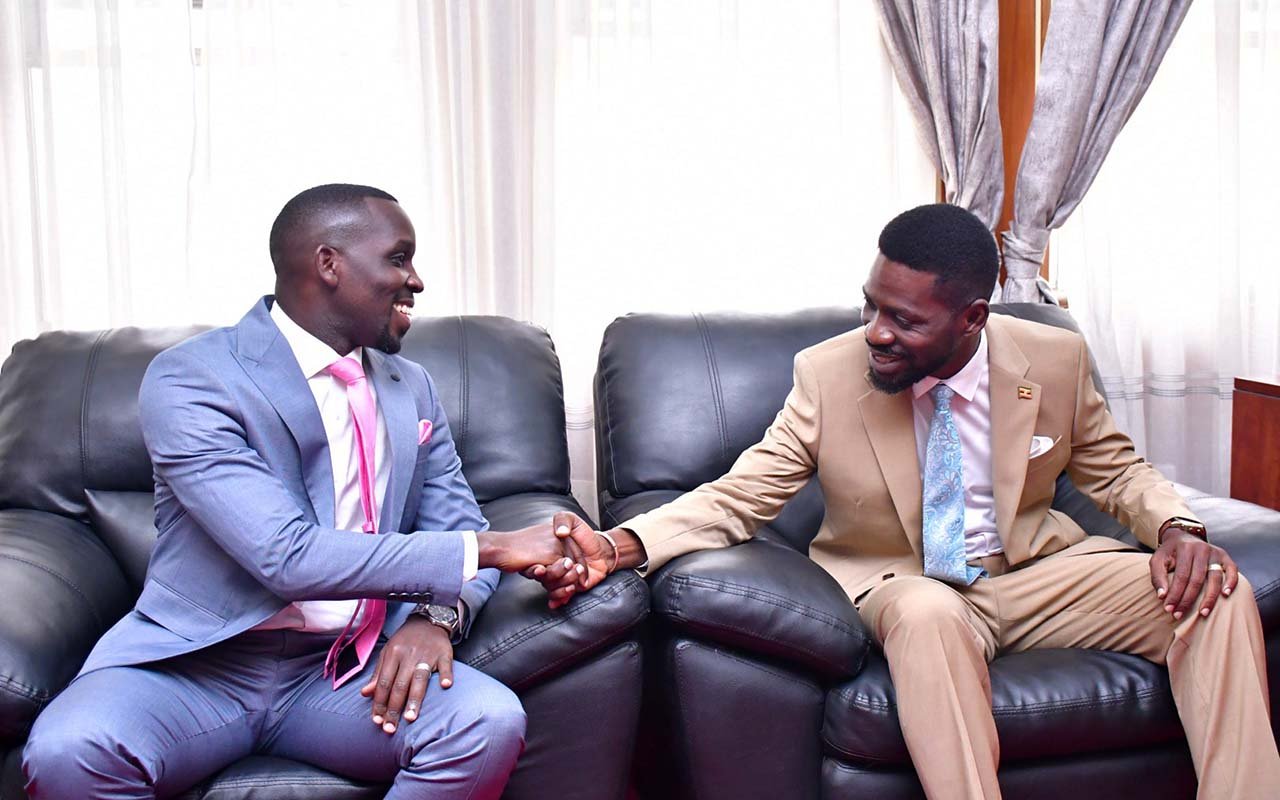Opposition must not preach water, drink wine

The Leader of Opposition in Parliament, Mr Joel Ssenyonyi (left), the National Unity Platform (NUP) party President, Mr Robert Kyagulanyi. share a light moment before the Alternative Budget reading at Parliament on April 8, 2024.
What you need to know:
- The irony is that Opposition lawmakers are beneficiaries of some, if not most, of the aforesaid superfluous expenses as the viral social media exhibition showed. So who is fooling who?
The Opposition laid out its alternative budget for the 2024/2025 fiscal year on Monday. Mr Ibrahim Ssemujju Nganda, who has for a little over a decade stood as one of the most potent forces opposing the Museveni regime, presented the Shs43 trillion budget. In a fluent analysis, the shadow Finance Minister highlighted the economic damage wreaked by wasteful expenditure. However, much like his predecessors, fell woefully short of offering an insight into the Opposition’s economic thinking.
To be clear, the Opposition is bang on about the dire need for financial prudence and wrestling the monster that is corruption, to mention but two. It is, however, abundantly clear that the current economic malaise confronting Ugandans can only be arrested by something of a radical agenda.
If one economic paradigm needs to be replaced with another, the Opposition can surely be accused of shrinking from the scale of the challenge. What is the Opposition’s economic paradigm? What we know is that it has normalised chasing the small comforts of playing the blame game.
Just as important, the optics are not good for Opposition lawmakers after an online media campaign dropped dark hints that illuminated the part they play in the wastefulness under the collective power of the House. Since then, the Secretary to the Treasury has proposed that the House budget be halved in the forthcoming fiscal year.
Yet even as the current goings-on threaten to cast a stain of financial imprudence on the entire House, Opposition lawmakers have chosen to remain so muted, even matter-of-fact. This, we reckon, serves up a shattering display of preaching water and drinking wine. The Opposition lawmakers talk—rightly so—about saving Shs1.2 trillion from spending on “luxurious items.” They itemise the following as avoidable pain points: ceremonies and state functions; travel, both inland and abroad; workshops, meetings and seminars; special meals and drinks; donations; and entertainment.
The irony is that Opposition lawmakers are beneficiaries of some, if not most, of the aforesaid superfluous expenses as the viral social media exhibition showed. So who is fooling who?
The alternative budget does not only push the necessary idea of cutting the budget deficit. It also suggests pushing the envelope when it comes to the aspect of revenue collection. Mr Ssemujju sets Uganda Revenue Authority a target of Shs33.4 trillion. The taxman has, however, failed to widen its tax base in part because a great chunk of money that lawmakers take home is not taxable. The International Monetary Fund has recently offered its unsolicited advice on how Uganda’s tax base can be widened.
The Fund has, among others, floated the idea of taxing proceeds of Savings and Credit Co-operatives (Sacoos) and unit trusts. We believe all the allowances lawmakers take home should be made subject to tax. And, above all, that Opposition lawmakers should drive this conversation. Make no mistake, they must practise what they preach.




